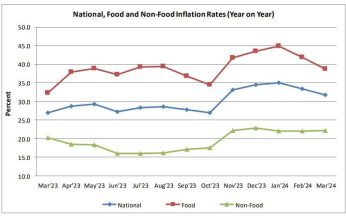Lack of knowledge hampers digital access, says Ecama
The study which was conducted by Associate professor of economics at Chancellor college, a constituent college of the University of Malawi Levison Chiwaula and colleagues, was funded by Partnership in Economic Policy (PEP), targeted Village Savings and Loan Associations (VSLA).
It combined access to physical training and mobile phone text message reminders which led to the increased uptake of mobile money services in rural Machinga and Mangochi districts respectively.

The study, which was disseminated to concerned stakeholders on Wednesday in Lilongwe, observed that with sound literacy on the services, people should be able to pay using digital means as opposed to cashing out and paying in hard cash.
The study conducted by Levison Chiwaula, associate professor of economics at Chancellor College, a constituent college of the University of Malawi and colleagues on behalf of Ecama, targeted village savings and loan associations.
The study, among others, found that the number of people saving with mobile money, micro-credit groups and banks increased by 6.2, 5.9 and 2.6 percent, respectively, compared to the group that did not get trained.
Ecama secretary general Andrew Kumbatira said it is clear from the research that if people in rural areas are provided with correct information and good incentives, more people can start to use mobile money platforms and enter the financial ecosystem.
He said as more people use mobile money platforms, it means government will save in excess of K15 billion every year in currency operations.
Said Kumbatira: “An increased usage of digital payment systems would generally improve transactional efficiency in the market and would allow people to have a wide range of payment options and enhance security.
“For example, what is stopping fuel stations from accepting payments through mobile money? This alone is an area that can provide quick wins for the economy.”
Ministry of Economic Planning and Development Principal Secretary Winford Masanjala admitted that Malawi has low levels of financial inclusion; hence, more needs to be done to improve the accessibility of financial services, especially in rural areas.
Consumers Association of Malawi executive director John Kapito said mobile money operators are facing credibility challenges because of rising schemes that lead to theft by tricksters for which companies fail to provide remedies.
He said low use of the mobile money services could also be due to the high cost of service fees.





